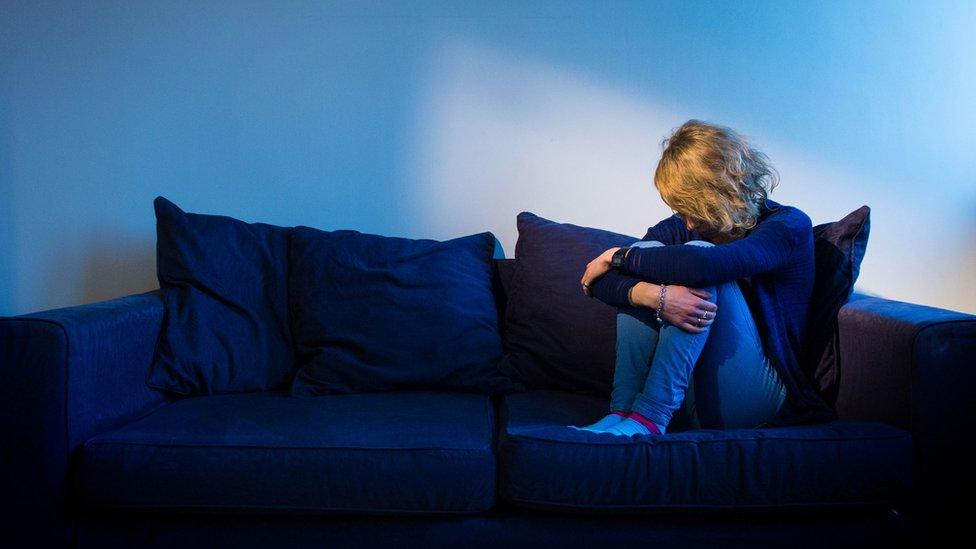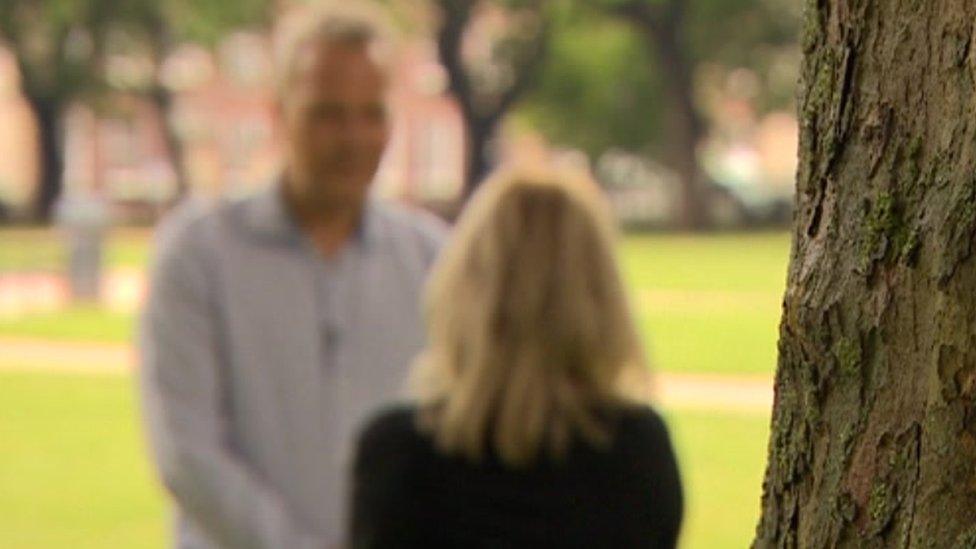Bristol pilot preventing domestic abuse to expand
- Published

The work includes challenging perpetrators to change, and working with the police and social services
A pilot programme working to prevent domestic abuse will expand after receiving a £1.2 million funding boost.
The Drive Project has been challenging the behaviour of high-risk domestic abuse perpetrators in South Gloucestershire since 2021.
The project says it has reduced the reoffending rates of domestic abuse perpetrators it has worked with.
The programme will now expand to Bristol and North Somerset, after the government increased its funding.
The Home Office has given a grant of £1.23m to the Police and Crime Commissioner, Avon & Somerset Police, Bristol City Council, North Somerset Council and South Gloucestershire Council to fund the scheme operating in those areas.
The Drive Project's work includes challenging perpetrators to change, and working with the police and social services to disrupt abuse and protect victims.
Mark Shelford, Avon & Somerset Police and Crime Commissioner, said: "I'm delighted with the results from the South Gloucestershire Drive Project, which has seen a 74% reduction in domestic abuse reoffending rates from Drive participants who fully engaged with this programme.
"This proves that challenging high-risk perpetrators and changing their attitudes, beliefs and behaviours reduces and prevents abusive reoffending."
The project has been running in South Gloucestershire since 2021, and has worked with more than 220 perpetrators and more than 670 survivors of domestic abuse.
Analysis by the University of Bristol found that intervention reduced the number of perpetrators using physical abuse by 82%, sexual abuse by 88%, harassment and stalking by 75%, and jealous and controlling behaviours by 73%.
The intervention includes intensive one-to-one work, where a case manager works with a perpetrator to change their attitudes and behaviour, as well as addressing other needs such as mental health, substance misuse and housing, that can stand in the way of change.
The work also includes advisers supporting survivors of domestic abuse.
Kyla Kirkpatrick, director of the Drive Partnership, said: "Our aim is to end domestic abuse and protect victims by disrupting and changing the behaviour of those who are causing harm."
For information and support about any issues raised in this story, help is available via the BBC Action Line.

Follow BBC West on Facebook, external, Twitter, external and Instagram, external. Send your story ideas to: bristol@bbc.co.uk , external
- Published7 January 2023

- Published10 June 2022
